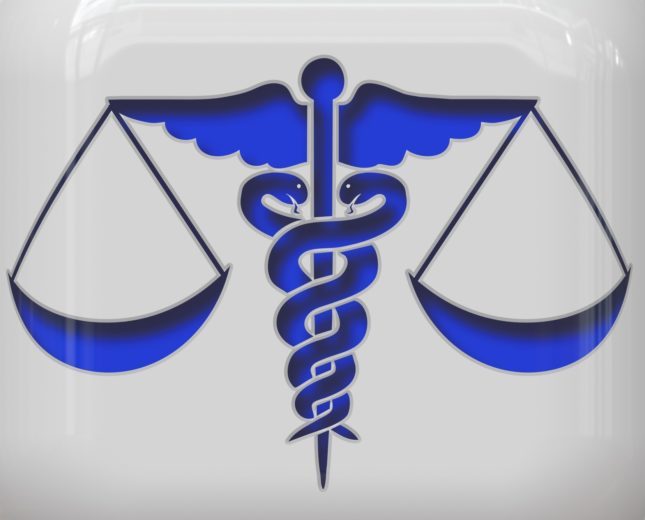My Personal Experience With Multiple Sclerosis and Cannabis
I have a special relationship with multiple sclerosis. 20 years ago I was a neurobehavior fellow at the UCLA Neuropsychiatric Institute. MS was one of the brain diseases that I was learning how to research and treat. One day I woke up and went for an early morning swim and when I returned to my apartment I felt an odd numb and tingling feeling from the waist down.
A couple of days later I was standing at the x-ray viewer in my neurology clinic looking at an MRI of my own spine and there was an opaque triangular area inside the cord. My mentor, Jeffrey Cummings, who has an encyclopedic memory was listing an outline of all the possible conditions that this could represent. MS was by far the best item on the list and the only item in which I would have more than about a two year life expectancy. Later that week I developed upper body numbness and had an MRI of my brain that showed some punctate contrast enhancing lesions. That afternoon there was an empty neurology clinic room for me to have a lumbar puncture. It was empty because it was my room and my patients had been re-scheduled. My cerebrospinal fluid confirmed that I had multiple sclerosis.
I now have two decades of experience studying all the mainstream treatments for MS and using several of them myself. As an aside, and to provide a personal anecdote, the first few treatments including Betaseron (interferon beta 1b), Avonex and Rebif (interferon beta 1a), and Copaxone (glatiramer acetate) are all injectables. That means you have to stick a needle into your skin on a regular basis. Well, into a muscle in the case of Avonex. I was on all these drugs except Copaxone. I don’t know how it works from a psychological point of view but putting a needle into yourself repeatedly gets to be a real pain in the ass. Literally a pain in the ass as you have to rotate injection sites and the ass is one of those sites.
Don’t watch this video of an intramuscular Avonex injection if you are at all squeamish: Avonex injection video
In my case I got lazy and stuck it in my thigh one too many times. As a result I got a skin infection that did not respond to antibiotics. I had poor circulation in my skin due to years of subcutaneous injections in the same location. I was hospitalized and given Vancomycin which is a last-line-of-defense-kill-everything antibiotic. I developed RED MAN SYNDROME which means my entire body, even the back of my eyelids, turned red. Except for my thighs which had poor circulation. They were white as a ghost. The only tiny positive aspect to this was that I got to be alone instead of surrounded by demanding family members in order to watch the college football national championship game in peace. It was day four of my incarceration and I saw Vince Young scramble into the end zone to win it in the waning moments for the University of Texas and then I fell asleep. A week and a half later I was allowed to return home.
I also have two decades of experience interacting with numerous other individuals that have MS and listening to their claims of complimentary medicines that are supposed to help. I recall one of my friends, a very nice woman in her sixties, who was adamant that Bee Sting Therapy had worked for her and that I should try it. I attempted to explain to her why that was a therapy that would have no effect on MS and that it was actually dangerous because you could set yourself up for an allergic response that could be life threatening. She did not hear a word I said and I did not push it. Before I knew it there were others in our support group that were interested in finding out from her about Bee Sting Therapy. I was being ignored. I could tell you about a number of other similar experiences.
In any case, I guess you could say that I am an expert on the interface of complimentary and mainstream medicine with respect to MS.
More recently, cannabis was made legal in my state of Colorado and they claim it can treat insomnia and muscle spasms due to MS. Since I suffer from insomnia and muscle spasms, I thought I should do a little research. Studies indicate that it works but has no greater efficacy than standard medications. On the other hand, individuals on-line provide testimonials with video evidence that seem to suggest it can have a dramatic effect.
Hmmmm … could this be a placebo effect?
When I watch this brief video, well, I don’t know. MS related muscle spasm video
I would bet that cannabis has real physiological anti-spasm effect and I bet it really does help you to sleep better. I would also bet that the behavior of consuming cannabis by bong or by joint has a potent placebo enhancing effect. In other words, real medicine plus placebo effect equals better outcome.
So, I finally got some cannabis into my blood stream even though I almost died choking on a joint. (just kidding) I think it helped me sleep and relaxed me but I was too focused on trying to figure out what it was doing. I could not just relax and let it do whatever it was going to do. I did it several more times and finally came to the conclusion that the effect is over-rated. I just did not think it was that great and I decided to go back to my Arturo Fuente cigars and El Dorado Rum. In retrospect, there is probably a major placebo component in all of this and it likely depends on your personal experience and expectations.

Other complimentary treatments may be totally inert but have value as a potent placebo. Acupuncture, for example, has long been touted to be a good treatment for MS but has now been demonstrated by scientific investigation to be a physiologically inert therapy. It has also been demonstrated to have a potent placebo effect. You know, because of the needles and the great story about its origin in ancient Chinese culture. It won’t re-grow myelin on the nerve cells in my brain or interdict in the process of multiple sclerosis on a molecular level but … well, OK, am I being too closed minded about this? It still maybe could and scientists are currently studying this very question. If placebo therapy turns out to be able to activate immune related neurotransmitters that can effect auto-immune disease then, well, maybe?
I think that is unlikely.
In any case, acupuncture can still help people with MS to sleep, have less pain, minimize psychosomatic complaints and maybe help with depression and anxiety through its effect as a potent placebo.
•
Since I have real brain injury it would be nice to grow some new synaptic connections so that my cognitive impairment would be less. It turns out that this might be possible. Games in which you practice cognitive activities may create sustained synaptic changes. I play Lumosity everyday and it seems to really help.
I also have real emotional injury. It would be nice to grow some new synaptic connections so that I would not be so quick to cry or laugh or get angry or develop anxiety. I wonder if non-pharmacologic or complimentary interventions could improve my emotional health by creating new synaptic connections.
I may be bias in that I have MS and may be overly hopeful and therefore susceptible to thinking that treatments will help when they actually won’t. The interesting thing is that if I can allow myself to really believe, then I might benefit more from the placebo effect. I may be too hard headed to allow this to happen. This is why the placebo effect is more effective with some individuals than with others. Different people have different personalities and some folks simply follow instructions better than others. I don’t follow instructions very well. I may be less gullible but I am less likely to benefit from the placebo effect. Remember, the placebo effect is about social interaction with a caring authority figure whose direction you are following. If you think you are smarter than everyone else and question anything anybody tells you to do, like I obviously do, then you might not be a good placebo responder.
I want to emphasize one important point. There are a lot of charlatans out there that want to take your money and complimentary medicine is a trillion dollar per year industry. Those that will respond best to the placebo effect will also be the most gullible to be taken advantage of by charlatans. As a major part of what I am doing I want to limit or reduce the degree to which people are risking their health through bad advice about complimentary medicine.
It is kind of a tricky line.
I recommend to say that complimentary medicine is OK if it is inexpensive, non-invasive, no deception is used, no risk of direct medical harm, and you understand what it works for and what it does not work for.
It is terrible when people think that ear candling alone will cure a horrible cancer like acute lymphocytic leukemia (ALL) when we have good treatments that totally cure 90% of ALL.
Here is my bottom line: MS is an interesting disorder to study in regards to the integration of complimentary and mainstream medicine. It is my opinion that both should be used together but that care should be taken to avoid undue expense or medical risk and everyone should be on a standard MS medicine.
-Morgan Levy, MD
![]()
Dr. Levy does speaking engagements to both professional and non-professional groups on a sliding scale. Read his bio and contact him at: Morgan L. Levy, MD
Register to receive notification of new content.

